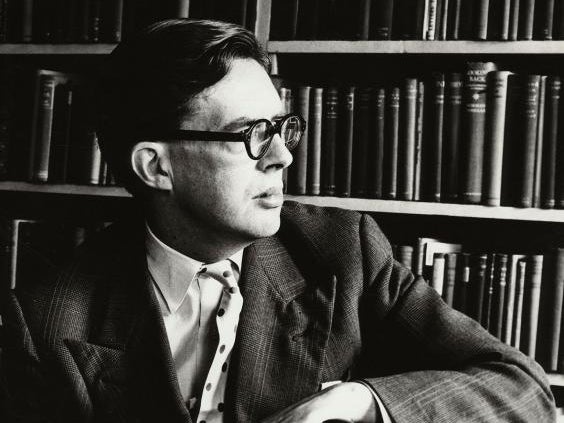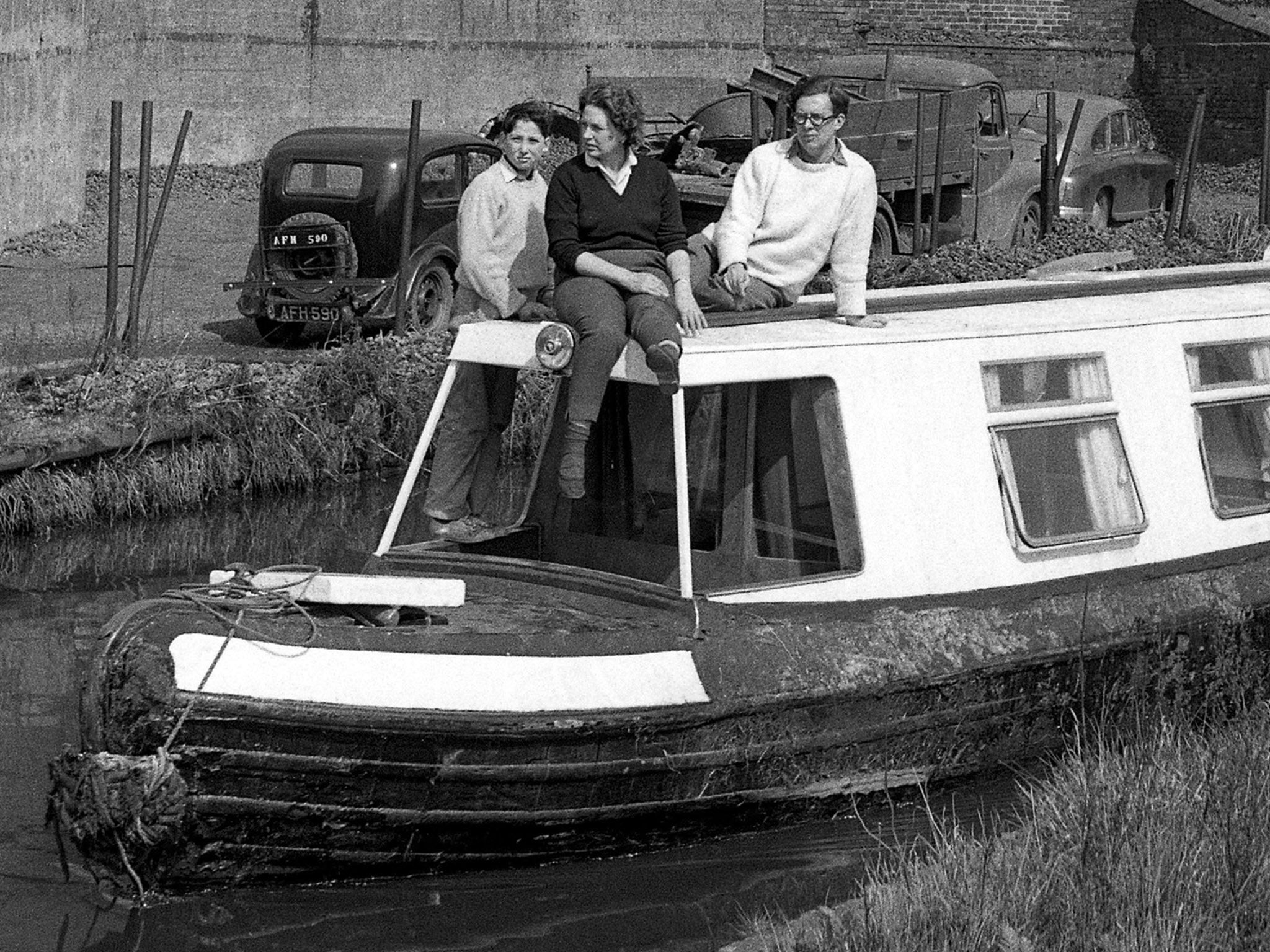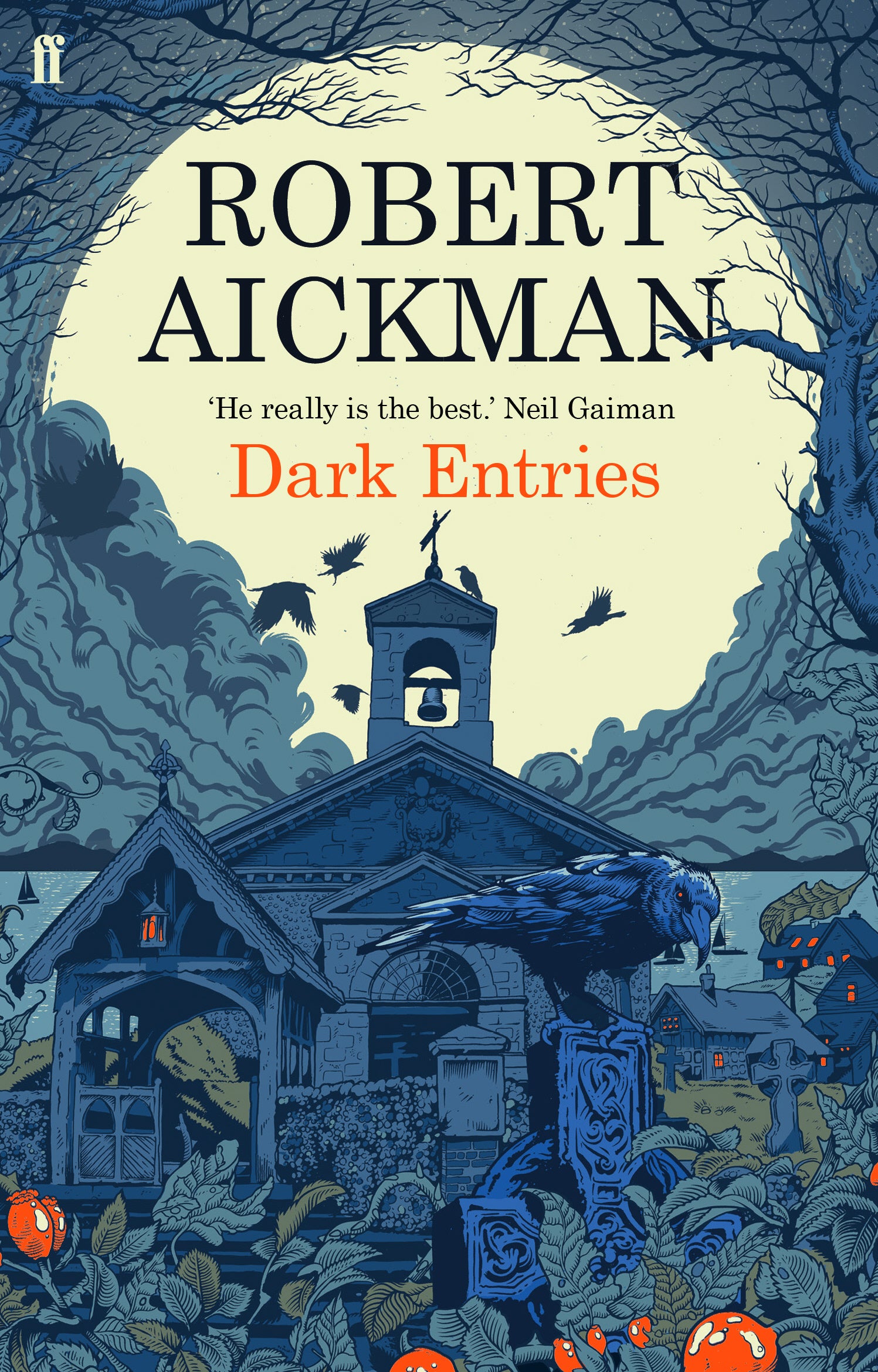Supernatural fiction's 'best kept secret' Robert Aickman will be celebrated at the British Library
There’s no better time of year than Halloween to discover the eerie stories of Robert Aickman, one of our most accomplished yet overlooked writers of strange fiction, says David Barnett

In the spring of 2016, I was interviewing the writer Neil Gaiman in London – just ahead of the Sky Arts broadcast of an anthology series of films based on his short fiction.
Discussing the stories chosen for adaptation, Gaiman expressed some pleasant surprise that the producers had not gone for what he thought were the more obvious ones, with neat endings, but had instead gone, in Gaiman’s words, for stories that were more “ambiguous; that don’t all come with closure”.
He said the stories in question were “Robert Aickman-esque”: the sort of tales that “leave you feeling faintly disturbed or feeling you may have been lied to, that don’t necessarily providing you with full explanations”.
This especially excited me because, just a couple of months before, I had discovered Robert Aickman myself, via some recently released (and very handsomely packaged) Faber & Faber collections of his short fiction.
I’d been aware of his name but not, as far as I’d been aware, read any of his work, until I came across the short story “The Hospice in Ann” in Jeff Vandermeer’s hefty anthology of strange fiction (which I heartily recommend), The Weird.

Between reading that and interviewing Gaiman, I’d ripped through the first two Aickman collections I’d got my hand on, Dark Entries and Cold Hand In Mine. And I’d discovered – as I exhort you to do now – a new favourite author.
“Isn’t he wonderful?” Gaiman had enthused when I informed him I’d just started reading Aickman. “It’s as if you watched a magic trick being done, and at the end of it you’re not even sure what the trick was.
“All you know is that there are now four aces on the table that you don’t think were there at the beginning, and you can’t quite get it out of your head.”
Which pretty much nails Aickman’s style. He didn’t really write ghost stories, though sometimes he did. What he did write was what he called “strange fiction”, reminiscent of the short stories of Shirley Jackson, American author of The Haunting of Hill House and The Lottery.
Like the best Jackson stories, Aickman’s fiction is often ambiguous. There are unreliable narrators, a sense of creeping unease, a subtle increase in atmospheric pressure around you as you read, like a storm approaching. You finish a story and sometimes you’re not quite sure how it ended – like you’ve just woken from a dream.
But it’s richly satisfying for all that. It’s the journey that counts, not always the destination (though many of Aickman’s stories do finish in a completely normal fashion).

Robert Aickman was born in London in 1914, and perhaps had weirdness in his DNA. His maternal grandfather was Richard Marsh, a writer who died in 1915 and who in 1897 had published an occult thriller called The Beetle – lost to relative obscurity now, but at the time on a par in popularity with another book published the same year: Dracula.
He had a strong interest in the supernatural and was a member of the Society for Psychical Research, taking part in a well-documented research project into the notorious Borley Rectory, believed to be one of the most haunted houses in the UK.
But Aickman was also a noted conservationist, co-founding the Inland Waterways Association which aimed to preserve and revitalise the country’s canal network. He also had a keen interest in culture and opera, serving as chairman of the London Opera Society in the 1950s and 1960s.
But it’s for his short fiction that he’s best remembered. He started writing in the 1950s and produced almost 50 finely-crafted stories, published throughout his life until his death in 1981. Two years before, in 1979, he had been diagnosed with cancer and declined conventional medical treatment, instead consulting homeopathic practitioners. He died in February 1981 in the Royal Homeopathic Hospital in London.
“Aickman was always a huge influence on me,” Gaiman told me. “I remember discovering him fairly young, and you’re lucky when you discover a weird author like that at a young age. I remember the sadness with which I discovered aged, about 24, that I was actually reading a posthumous Aickman collection.”
What should you read to get a flavour of Aickman? Well, any of the currently available collections will provide the requisite unease for the Halloween season: Dark Entries; Cold Hand in Mine; The Wine-Dark Sea and The Unsettled Dust. There’s a feeling of building menace, which sometimes dissipates but leaves a strange aftertaste.
This is true of the aforementioned “The Hospice”, in which a traveller with car trouble seeks shelter in a strange place: part hotel and part prison – or asylum – where vast piles of food are laid before the residents each night and they go to bed chained by their ankles. There’s almost a sense of satire in stories like that, and “Growing Boys”, in which a mother at the end of her tether has to cope with two sons who take on literally monstrous proportions.
The stories of Aickman have their spiritual successors not only in the work of Gaiman, but TV series such as Charlie Brooker’s Black Mirror and the oeuvre of The League of Gentlemen, including the very Aickman-esque Inside No 9.
Reece Shearsmith, one quarter of the League as well as one of the creative brains behind Inside No 9 is a huge Aickman fan, as is Jeremy Dyson, the non-acting member and co-writer of the League team, along with Andy Nyman, of stage show Ghost Stories – now a movie starring Martin Freeman which is garnering rave reviews.
Dyson, currently on set with Mark Gatiss, Reece Shearsmith and Steve Pemberton, filming the new series of The League of Gentlemen, will join horror writer (and friend of Aickman) Ramsey Campbell next month for an event at the British Library entitled “Even Stranger Things: A Night for Robert Aickman”, with appearances from Aickman’s agents and Richard T Kelly, who oversaw the recent re-release of Aickman’s story anthologies. They’ll be talking about Aickman, his influence on them, and reading from their favourite of the writer’s stories.
Dyson says: “Robert Aickman was a presence right through my younger years. He edited the ‘Fontana Book of Ghost Stories’ collections in the 1970s which I used to get bought for me as birthday presents from the age of about eight. Then I rediscovered him in the late 1980s, and I know Mark Gatiss had the same sort of experience around the same time.”
It almost seems like Aickman is the best kept secret of British fiction. “His reputation does seem to grow year upon year,” says Dyson, “but he is terribly underrated by the literary establishment.
“If he wasn’t English – if he was South American, say – he’d be feted by the literary mainstream. But the establishment does treat anything it views as genre writing with a whiff of snobbery, which is absurd.”
Aickman’s stories are also the gift that keeps on giving, says Dyson. “When you come back to him at different stages of your life, the stories seem to rewrite themselves and take on a different perspective.
“Reading Aickman at the age of 50 is different from reading Aickman at 20. The stories get under your skin. Some are more overtly traditionally ghost stories than others, and some are more opaque.
“And what I love is that sometimes the protagonist has this weird experience and just drives away from it unharmed … and sometimes they don’t, but you never really know how a story is going to end up.”
Even Stranger Things: A Night With Robert Aickman, takes place at the British Library on 10 November
Join our commenting forum
Join thought-provoking conversations, follow other Independent readers and see their replies
Comments